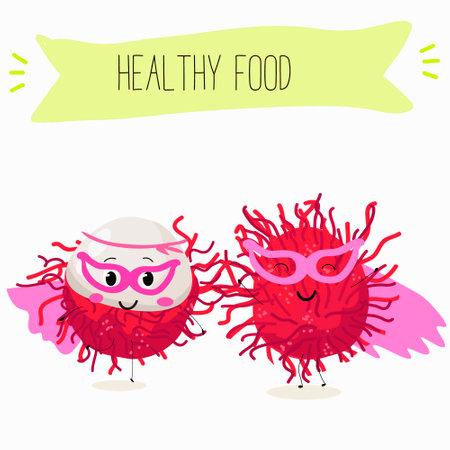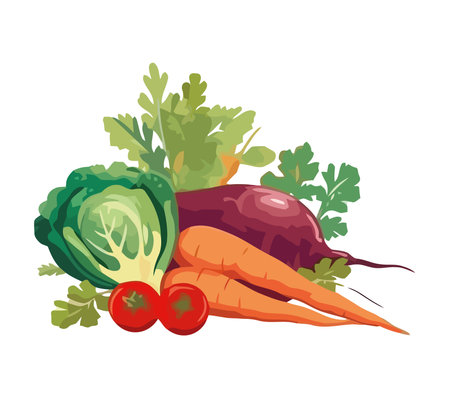1. Introduction to a UK-Focused Detox
Detoxing has become increasingly popular across the UK, especially as more people aim to reset their health and wellbeing after periods of indulgence or stress. In the British context, a detox usually refers to a short-term dietary plan designed to reduce the intake of processed foods, refined sugars, caffeine, and alcohol—common culprits in many UK diets. The typical goals of a week-long UK detox are to boost energy levels, support digestive health, encourage healthy eating habits, and perhaps even kick-start weight loss. Benefits often reported by participants include improved mood, clearer skin, and better sleep quality. However, it’s important to approach any detox with realistic expectations: these plans are not about drastic cleanses or deprivation but rather about giving your body a break and nourishing it with whole, nutrient-dense foods. As you consider embarking on a seven-day detox, keep in mind key considerations such as personal health needs, access to fresh local produce, and maintaining a balanced intake of essential nutrients. This guide will offer practical meal ideas and an easy-to-follow shopping list tailored specifically for those living in the UK.
Detox-Friendly Shopping List
A successful UK detox plan begins with the right ingredients. Choosing locally sourced, seasonal produce not only supports British farmers but also ensures you get the freshest and most nutrient-dense foods. Below is a comprehensive shopping list tailored for a week-long detox, focusing on items easily found at UK supermarkets such as Tesco, Sainsbury’s, and Waitrose.
Fresh Fruits and Vegetables
| Category | Example Ingredients | Seasonal Highlights (Spring/Summer) |
|---|---|---|
| Leafy Greens | Kale, spinach, watercress, rocket | Kale, spinach |
| Root Vegetables | Carrots, beetroot, parsnips | Beetroot, carrots |
| Brassicas | Broccoli, cauliflower, cabbage | Broccoli, cabbage |
| Berries & Apples | Strawberries, blueberries, apples | British strawberries, apples (late summer) |
| Citrus & Others | Lemons, limes, pears | Lemons (imported), pears (late summer) |
| Alliums | Red onion, garlic, leeks | Leeks (spring) |
| Herbs | Mint, parsley, coriander, basil | Mint (spring/summer) |
Whole Grains and Legumes
- Porridge oats (UK-grown where possible)
- Lentils (red or green)
- Chickpeas and cannellini beans (tinned or dried)
- Brown rice or barley (British barley is widely available)
- Quinoa (often imported but available in all major supermarkets)
Dairy Alternatives and Healthy Fats
- Unsweetened almond milk or oat milk (Oatly is a popular UK brand)
- British rapeseed oil for cooking and salads
- Nuts: walnuts and hazelnuts from local sources if possible
- Avocados (not grown in the UK but widely stocked in supermarkets)
- Pumpkin or sunflower seeds (UK-grown brands are increasingly available)
Fish and Lean Protein Sources
- Sustainably sourced salmon or mackerel (MSC-certified where possible)
- Barn-reared free-range chicken breast or turkey fillets from UK farms
- Free-range eggs from local suppliers or supermarket own-brand British eggs
- Tinned sardines or pilchards in spring water (check for UK-caught options)
- Naturally smoked tofu or tempeh for plant-based protein alternatives (available in most large supermarkets)
Cupboard Essentials and Extras
- Herbal teas: peppermint, nettle, chamomile (Pukka and Clipper are UK brands)
- Balsamic vinegar and cider vinegar for dressings and marinades
- Dried mixed herbs and spices: turmeric, ginger powder, black pepper
- Tahini and natural nut butter (no added sugar or palm oil; Meridian is a trusted UK brand)
Your Local Shop Strategy:
To maximise freshness and nutritional value during your detox week, aim to buy fresh produce from your local greengrocer or farm shop when possible. Supplement this with supermarket staples for convenience. This approach ensures your meals are built around what’s best each season in the UK while supporting both your health goals and local food systems.

3. Breakfast Ideas
Starting your day with a nourishing, balanced breakfast is key to any successful detox plan. For this week-long UK detox, focus on simple recipes that highlight fresh, local ingredients and provide sustained energy without overwhelming your digestive system. British summer berries—like strawberries, raspberries, and blueberries—are rich in antioxidants and vitamins, making them a perfect addition to your morning routine.
Overnight Oats with Summer Berries
Combine rolled oats with unsweetened almond milk or skimmed milk, add a spoonful of chia seeds for extra fibre, and top with a generous handful of British summer berries. Leave it overnight in the fridge for a quick grab-and-go breakfast packed with slow-release energy and nutrients. This option is not only cost-effective but also easy to prepare in advance, aligning well with busy UK lifestyles.
Poached Eggs on Wholegrain Toast
Eggs are an excellent source of high-quality protein and essential vitamins like B12 and D. For a classic British start, poach two free-range eggs and serve them on toasted wholegrain bread. Add grilled tomatoes or wilted spinach for an extra nutrient boost and a touch of vibrant colour. Wholegrain toast provides complex carbohydrates that help you feel fuller for longer without causing blood sugar spikes.
Other Simple Breakfast Options
- Porridge made with Scottish oats, topped with grated apple and a sprinkle of cinnamon
- Natural yoghurt layered with stewed rhubarb or blackcurrant compote
- Mushrooms sautéed in olive oil served on rye toast
Detox-Friendly Tips
Opt for minimally processed foods and avoid adding refined sugars or excessive salt to your breakfast dishes. Using local produce not only supports British farmers but also ensures you’re getting ingredients at their nutritional peak. Hydration is equally important; begin each morning with a glass of water infused with a slice of lemon or cucumber to gently kickstart digestion before your meal.
4. Lunch Inspirations
A balanced lunch is key to maintaining energy and supporting your detox goals throughout the week. Drawing on UK culinary traditions, here are a range of wholesome lunch ideas that prioritise nutrient density and flavour without overwhelming your digestive system.
Classic British-Inspired Detox Lunches
| Dish | Main Ingredients | Nutritional Highlights |
|---|---|---|
| Roasted Root Vegetable Salad | Carrots, parsnips, beetroot, kale, pumpkin seeds, apple cider vinaigrette | High in fibre, antioxidants, and vitamin A; supports liver function |
| Lentil & Vegetable Soup | Brown lentils, leeks, carrots, celery, thyme, bay leaf | Rich in plant-based protein and iron; low glycaemic index for steady energy |
| Mackerel with Steamed Greens | Mackerel fillet, spinach, broccoli, lemon zest, black pepper | Omega-3 fatty acids for heart health; greens aid detoxification enzymes |
How to Build Your Detox Lunch Plate
- Choose a lean protein: Options like poached chicken breast, grilled fish (especially oily types like mackerel), or legumes.
- Add seasonal veg: Roasted or steamed root vegetables (e.g., swede, turnip) and leafy greens support micronutrient intake and satiety.
- Incorporate healthy fats: Drizzle with cold-pressed rapeseed oil or add a sprinkle of toasted seeds for essential fatty acids.
Sample Weekly Lunch Rotation
| Day | Main Dish |
|---|---|
| Monday | Lentil & vegetable soup with rye bread |
| Tuesday | Mackerel fillet with steamed spinach and boiled new potatoes |
| Wednesday | Roasted beetroot and carrot salad with pumpkin seeds and feta (optional) |
| Thursday | Baked sweet potato topped with cottage cheese and chives |
| Friday | Lentil salad with cherry tomatoes, cucumber, and parsley |
Cultural Tips:
- Tapping into British traditions such as hearty soups or simple fish dishes keeps lunches comforting yet light.
- Aim for variety—rotate proteins and vegetables to maximise nutrient exposure and keep meals interesting.
5. Dinner Recipes and Variations
Detox-friendly dinners should be both satisfying and supportive of your body’s natural cleansing processes. In the UK, wholesome local ingredients like root vegetables, leafy greens, and fresh fish are easily accessible and ideal for a gentle evening meal. The following recipes prioritise whole foods, minimal processing, and simple preparation, making it easier to stick to your week-long detox plan.
Grilled Fish with Wilted Kale
Ingredients: Sustainable white fish fillets (such as cod or haddock), fresh kale, lemon juice, olive oil, sea salt, and cracked black pepper.
Method: Lightly season the fish fillets and grill until just cooked through. Meanwhile, sauté kale in a splash of olive oil until wilted. Serve the fish atop the kale with a squeeze of lemon.
Why it works: Fish is rich in lean protein and omega-3s, supporting liver health, while kale offers fibre and antioxidants.
Barley Risotto with Roasted Vegetables
Ingredients: Pearl barley, low-salt vegetable stock, onion, garlic, carrots, parsnips, courgette (zucchini), and fresh herbs.
Method: Roast diced vegetables in the oven until tender. Meanwhile, cook barley slowly with onion and garlic in the stock until creamy. Stir through roasted vegetables and finish with chopped herbs.
Why it works: Barley is a traditional British grain high in fibre and low on the glycaemic index. Combined with seasonal veg, it makes a filling yet light dinner option.
Hearty Vegetable Hotpot
Ingredients: Swede (rutabaga), carrots, potatoes, leeks, tinned tomatoes, mixed beans (drained), bay leaf, thyme.
Method: Layer chopped vegetables in a large pot with tinned tomatoes and herbs. Simmer gently until all veg are tender. Add beans towards the end for extra protein.
Why it works: This classic comfort dish uses only plant-based ingredients that are gentle on digestion while providing sustained energy.
Dinner Variations & Tips
– Swap fish for grilled chicken breast if preferred.
– Try quinoa or brown rice in place of barley for gluten-free options.
– Flavour with British-grown herbs like parsley or chives for added freshness.
– For ease on busy evenings, prepare double portions to enjoy as leftovers for lunch.
A focus on simple cooking methods—grilling, roasting, simmering—ensures nutrients are preserved while keeping preparation straightforward. These dinners are designed to leave you feeling nourished without heaviness, supporting your week-long UK detox journey.
6. Snacks and Drinks for Detox
Choosing the right snacks and drinks is crucial to support your week-long UK detox plan. Healthy snacking helps maintain steady energy levels, curbs cravings, and keeps you on track. Opt for naturally nutrient-dense options that align with British tastes and are easy to prepare at home.
Healthy Snack Options
Instead of reaching for processed or sugary snacks, try these satisfying choices:
Apple Slices with Nut Butter
This classic snack combines fibre-rich British apples with a source of healthy fats and protein from almond or peanut butter. Choose unsweetened nut butters and enjoy as a mid-morning or afternoon pick-me-up.
Homemade Oatcakes
Oats are a staple in many UK households and make an excellent base for homemade oatcakes. Simply mix rolled oats with water, a pinch of salt, and a drizzle of olive oil before baking. These can be paired with hummus or cottage cheese for added protein.
Vegetable Sticks with Hummus
Sliced carrots, celery, and cucumbers offer crunch and hydration. Pairing them with hummus provides extra flavour and nutrients while keeping things light.
Hydrating Drinks Rooted in British Preferences
Staying hydrated supports natural detoxification by flushing out toxins. Swap sugary beverages for these traditional British favourites:
Herbal Teas
Herbal teas such as peppermint, chamomile, or nettle are widely enjoyed across the UK. These caffeine-free infusions aid digestion and provide gentle hydration throughout the day.
Infused Water
Add slices of cucumber, lemon, or fresh mint to a jug of water for a refreshing twist. This makes plain tap water more appealing and encourages consistent sipping—essential during any detox plan.
Tip: Avoid Alcohol and Fizzy Drinks
For optimal results during your detox week, steer clear of alcohol and sugar-laden fizzy drinks. Focus on herbal teas and infused waters to maximise hydration without unnecessary calories or additives.
7. Tips for a Successful Detox Week
Embarking on a week-long UK detox plan can be both refreshing and challenging. To ensure your detox is sustainable and enjoyable, it’s important to approach it with the right strategies, source quality local products, and anticipate common hurdles. Here are practical tips tailored for a successful UK-based detox experience.
Source Locally for Freshness and Quality
Opt for British-grown fruits and vegetables wherever possible. Farmers’ markets, box schemes like Riverford or Abel & Cole, and high street greengrocers often provide seasonal produce that supports local agriculture. For whole grains, pulses, and nuts, UK brands such as Hodmedod’s offer excellent British-grown options. When buying fish or poultry, look for Red Tractor or RSPCA Assured labels to guarantee ethical standards.
Plan Ahead to Avoid Temptation
Preparation is key. Create your shopping list based on your meal plan before heading out. Batch cooking staples such as soups, roasted vegetables, or overnight oats can prevent unhealthy snacking when hunger strikes. Keep healthy snacks—like carrot sticks or oatcakes—on hand to resist the allure of crisps or biscuits.
Stay Hydrated with British Options
Swap sugary drinks for herbal teas like peppermint or nettle (try Pukka or Clipper, both UK-based brands). Infuse tap water with cucumber, mint, or berries for natural flavour without added sugars. Remember that good hydration supports the body’s natural detoxification processes.
Manage Common Challenges
Caffeine Withdrawal
If you’re reducing caffeine, consider gradually switching to decaf tea (Yorkshire Tea offers a popular decaf) or naturally caffeine-free options like rooibos to avoid headaches.
Social Situations
If you’re invited out, suggest venues with healthy options (many UK pubs now serve salads and grilled mains) or propose meeting for a walk instead of a meal. If drinking is expected, opt for sparkling water with fresh lime—a classic British alternative.
Lack of Time
If busy schedules make meal prep difficult, seek pre-prepped veg boxes or ready-made healthful meals from retailers like Waitrose’s Good Health range or Marks & Spencer’s Plant Kitchen line.
Keep It Enjoyable
Add variety by experimenting with herbs and spices—fresh coriander, dill, and parsley are widely available in UK supermarkets. Try traditional British root veg mash with swede and carrots instead of potatoes for a change of pace. Share your progress with friends or online communities; mutual support can boost motivation.
Monitor Your Progress
Track how you feel physically and mentally each day. Celebrate small milestones: improved sleep, better digestion, or higher energy levels. Adjust your plan if something isn’t working—flexibility is part of making healthy habits stick beyond the detox week.


